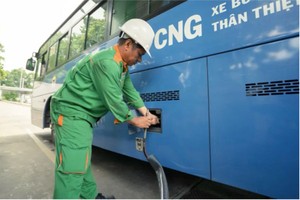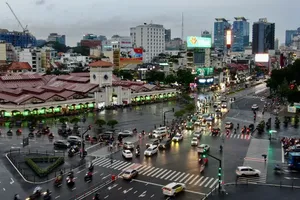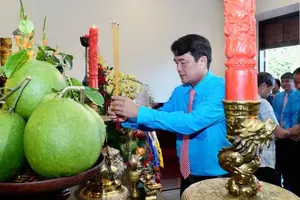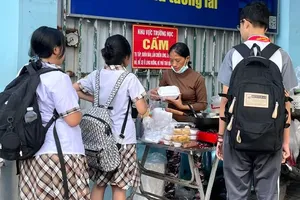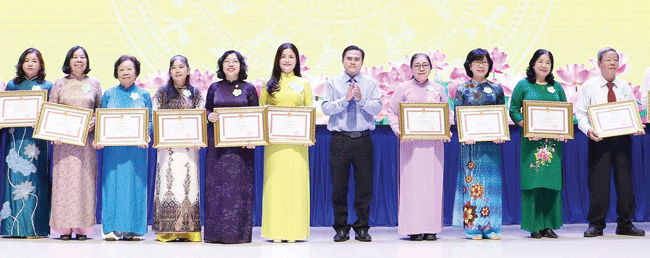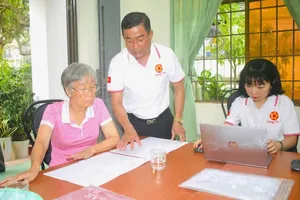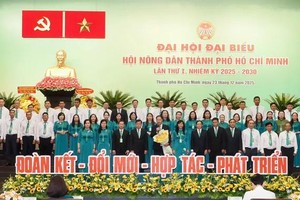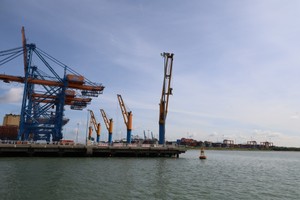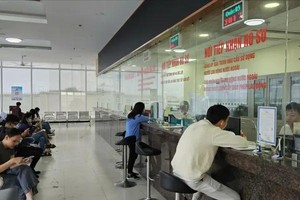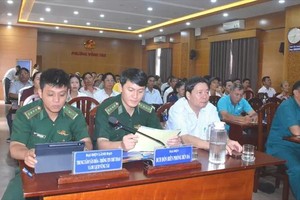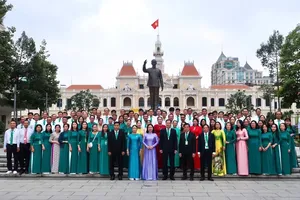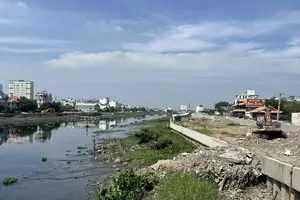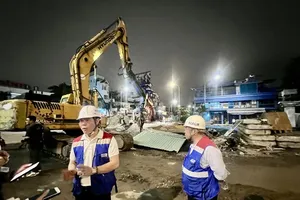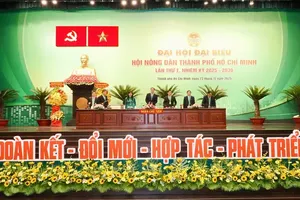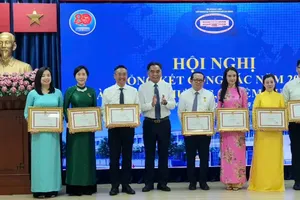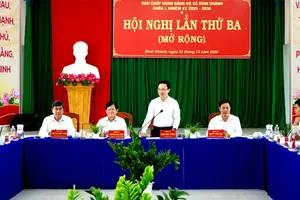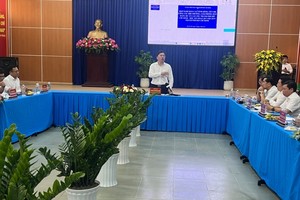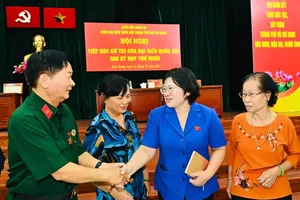HCMC top leaders yesterday met 230 scientists, overseas and domestic intellectuals, lecturers and outstanding doctors listening to their opinions and suggestions to tackle city issues and better education and health care service for citizens.
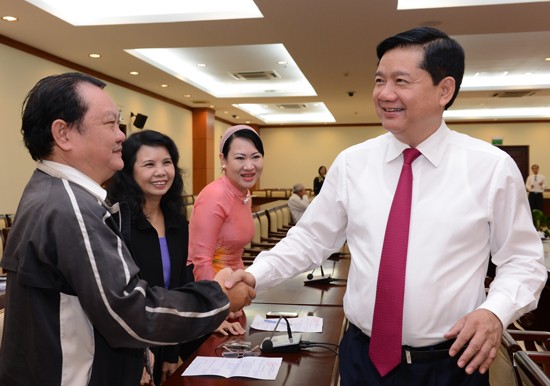
Besides the secretary, other leaders attending the meeting comprised permanent deputy secretary of the city Party Committee Tat Thanh Cang, People’s Committee chairman Nguyen Thanh Phong and People’s Council chairwoman Nguyen Thi Quyet Tam.
At the event, the 230 attendees representing one million intellectuals of the city made suggestions for the city’s issues.
Associate Professor Dr. Tang Chi Thuong, deputy director of the city Department of Health, said that the city’s medical industry had supplied two creative emergency aid services outside hospitals.
First, a network of 21 satellite first aid posts have been launched citywide and the agency planned to increase the number to 23 next year to access accident scene as fast as possible and give emergency aids within 5 minutes since receiving news.
Second, the agency has implemented an ‘inter-hospital red alert’ process to save patient’s life in case of critical condition. The process creates an urgent coordination by many medical experts from leading hospitals in HCMC, reduces many intermediate phases and administrative procedures to take advantage of 'gold opportunities' to save patients’ lives.
So far, 30 patients in critical condition have been saved. Of these, six surgeries were successfully conducted right at local hospitals.
The network received 11,800 calls in the first ten months of 2016, 200 percent increase over 2014, Mr. Thuong reported. He proposed the city to soon approve a project to train pre-hospital emergency aid workers and further invest in and develop the network.
Associate professor Dr. Nguyen Thi Ngoc Dung, former director of Pham Ngoc Thach medical hospital, said that medical training must be changed to improve medical workers’ service which citizens have much complained about.
Besides theory lessons and hospital practice, students must be comprehensively trained to improve knowledge, professional practice, skills and communications. A doctor should not only care about diseases but also patients providing them advices and consoling them, she added.
Ms. Dung proposed to organize a medical association including those with good professional knowledge and outstanding practice skills. The duty of universities is training and the medical association will help doctors to reach patients, maintain their prestige and medial etiquette.
The association will help supervise doctors with thousands of their colleagues and experts and cross out names of those doing wrong things, she suggested.
Salary reform needed to lure talents
Associate Professor Dr. Ho Thanh Phong, principle of International University under HCMC National University, said that the city needed a wage revolution to attract talents.
With many complicated regulations now, the principle questioned if the state still wants to give education institutions autonomy.
Associate professor Dr. Do Thi Hong Tuoi, lecture of HCMC Medical University, said that some overseas students had lost their sense of direction when returning Vietnam. They had not been well prepared with knowledge of local working conditions and environment and things that the city needed.
She hoped that the municipal leaders will have a mechanism to promote the brainpower of young intellectuals and help them feel that they are believed and respected.
Intellectual development funds wrongly spent
Associate professor Dr. Vo Van Sen, chairman of HCMC Historical Science Association, pointed out one of barriers in intellectual development.
According to regulations, the city must spend 2 percent of its budget revenue for science and technology a year, equivalent to VND1 trillion (US$44 million). However the funds has reached only VND400 billion for the last five years with the remaining amount spent on other purposes.
The city’s MA and doctoral training program implemented since 2001 has yielded 700 graduates including 425 people working at agencies.
Mr. Sen said that from the outset, the program should work to provide human resources for institutions and universities instead of agencies. Some provinces and cities have unnecessarily set up their targets on the percentage of MAs and doctors for administrative management.
Therefore, HCMC should have a serious, adequate and comprehensive strategy for the development of intellectuals. Local points of view and sparse policies would not settle any issue, he said.
In response, chairman of the city People’s Committee Nguyen Thanh Phong said that the program aimed to supplement human resource for some key industries of the city. He affirmed that the city does not have any policy on the academic titles of cadres and officials by 2020. That was not the city’s target, he said.
At present, the city has about 2,600 professors and doctors working at universities and 60,000 intellectuals who are members of the HCMC Technique Science Association, Mr. Phong reported, adding those were a huge resource which the city should promote.
Proposals to be materialized
Secretary Dinh La Thang said that city leaders listened to and appreciated opinions and proposals from intellectuals at the meeting. He proposed them to continue making suggestions for the city to efficiently implement its breakthrough programs.
The Party Committee and People’s Committee will turn proposals made at the meeting into specific programs and assign agencies to implement them, Mr. Thang affirmed.
In addition, the city will coordinate with the HCMC Technique Science Association to honor scientists with projects contributing to the country and city’s development, set up a professional team to help universities and hospitals to gain autonomy comprehensively with ultimate target to provide citizens better health care service and education, he stated.
He expected intelligentsia to continue accompanying the city and making suggestions for the city to obtain its targets.
The secretary believed with large and powerful intelligentsia accounting for 10 percent of population, excluding overseas Vietnamese and intellectuals from other provinces and cities, HCMC will be able to make its dream true to become a finance and science center of the south east Asian region.
